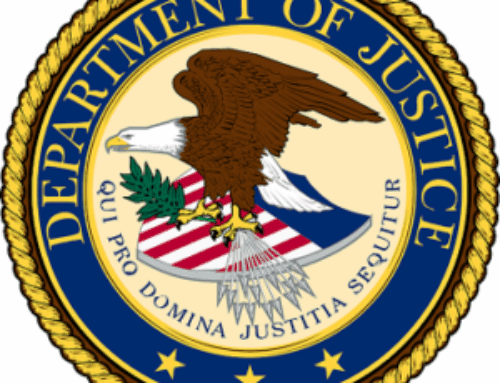
By the Constantine Cannon Whistleblower Team
Last Thursday (May 22), the Department of Justice (DOJ) announced that Utah-based defense contractor L3 Technologies agreed to pay $62 million to settle charges it violated the False Claims Act by overcharging the Department of Defense (DOD) on various military contracts.1 L3 makes communications equipment to operate unmanned vehicles and retrieve data for military operations and intelligence.
TINA Requires Transparent Cost and Pricing Data
Under the Truth in Negotiations Act (TINA), Government contractors must disclose all relevant cost and pricing data when negotiating Government contracts. The statute is designed to ensure the Government has all the data it needs to negotiate fair and reasonable pricing and avoid overpaying contractors.
According to the Government, L3 did not comply with these TINA transparency requirements. Instead, for more than seven years (between October 2006 and February 2014) — and despite certifying its TINA compliance — the company “failed to disclose accurate, complete, and current cost or pricing data relating to the labor, material, and other costs for manufacturing” the various communications equipment it sold in dozens of DOD contracts. As a result, L3 allegedly overcharged the Government by tens of millions of dollars.
Government Contracting Fraud Is a Top DOJ Enforcement Priority
Government contracting fraud, especially on military contracts, has always been a central focus of the False Claims Act. In fact, the statute was enacted by President Lincoln during the Civil War to go after war profiteers trying to dupe the Union Army. While Medicare/Medicaid fraud has become the most common target of the False Claims Act these days, government contracting fraud remains a top DOJ enforcement priority under the statute.
In announcing this latest settlement, DOJ stressed its continued commitment to ensuring contractors, especially military contractors, deal openly and honestly with the Government. Acting DOJ Civil Chief Yaakov Roth said his agency “will vigorously pursue federal contractors who fail to provide truthful information during contract negotiations to ensure federal agencies do not overpay for products and services.”
Acting U.S. Attorney for the District of Utah Felice John Viti echoed this sentiment, underscoring how “taking advantage of the resources that support the armed forces of the United States and other government agencies will not be tolerated.” So did Special Agents from the Air Force and Army, each of whom highlighted the critical need to ensure integrity in military contracting decisions.
Whistleblowers Are Critical to Uncovering Government Contracting Fraud
DOJ does not act alone in going after fraudsters under the False Claims Act. To the contrary, whistleblowers originate the majority of False Claims Act lawsuits under the qui tam provisions of the statute, which authorize private parties to bring suit on behalf of the Government. In return, successful whistleblowers can receive up to 30% of any Government recovery.
There is no indication a whistleblower originated the action against L3. However, whistleblowers typically play a key role in assisting the Government expose fraud because they provide an inside window into misconduct that so often remains hidden from the Government and public.
As Constantine Cannon whistleblower partner Gordon Schnell notes, “A major feature of the False Claims Act is the protections and incentives it provides whistleblowers to encourage them to report fraud to the Government.” According to Schnell, “It is all part of Congress’s long recognition that having eyes and ears on the inside is the best way — and sometimes only way — to uncover corporate fraud and misconduct.”
Constantine Cannon Represents Government Contract Fraud Whistleblowers
Constantine Cannon has substantial experience representing whistleblowers under the False Claims Act, with numerous successes in the government contracting area. Most recently, the firm represented the whistleblower who brought an action alleging defense contractor KBR Services overcharged the government in procuring supplies for U.S. troops stationed in Iraq and Afghanistan. KBR paid $108.75 million to settle the matter, with our client receiving a whistleblower award of $31.5 million.
If you have information relating to potential Government contracting fraud, or would like to learn about what it means to be a whistleblower under the False Claims Act, please do not hesitate to contact us. We will connect you with an experienced member of the Constantine Cannon whistleblower team for a free and confidential consultation.
Speak Confidentially With Our Whistleblower Attorneys
Sources
1 See https://www.justice.gov/opa/pr/l3-technologies-inc-agrees-pay-62000000-resolve-false-claims-act-allegations-arising.
Read L3 Technologies to Pay $62M For Allegedly Overcharging DOD on Military Contracts at constantinecannon.com






Leave A Comment